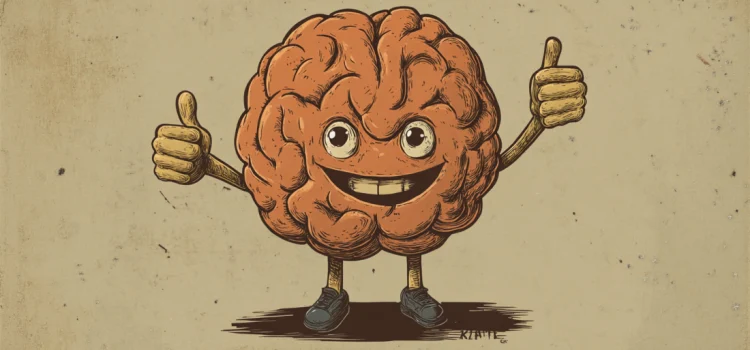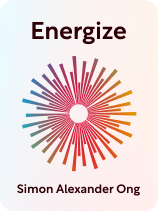

This article is an excerpt from the Shortform book guide to "Energize" by Simon Alexander Ong. Shortform has the world's best summaries and analyses of books you should be reading.
Like this article? Sign up for a free trial here.
Why is mental health important to your energy? What does it mean to nourish your mind?
It’s extremely important to take care of your physical needs with diet, exercise, and sleep. However, you can’t focus and direct your energy without also taking care of your mental and emotional well-being.
Keep reading to learn how to take care of your mind to maintain energy.
Nourish Your Mind
Most of the qualities we think of as “high-energy”—such as leadership, enthusiasm, and determination—are mental states that can only thrive if you nurture a healthy mindset. Simon Alexander Ong highlights continual learning and inner reflection as ways to learn how to take care of your mind the way that exercise, good food, and sleep do for your body.
Making lifelong learning a habit will open your mind to new perspectives that serve as a wellspring for mental energy. Chief among these is curiosity, the underlying basis for original thinking, innovation, and creativity. The trick is learning how to stay curious in situations where you think you’re an expert. Ong suggests that you approach every situation as if you’re a novice, even when you’re not. Asking questions can lead to surprising answers you’d never have considered from your own point of view. Unexpected answers point to creative solutions, but the unexpected also breeds excitement. Therefore, being curious about what you already “know” brings your mind a sense of energy you wouldn’t have otherwise tapped.
(Shortform note: Ong’s advice to ask questions like a novice has wider applications than the realm of self-improvement. In Alchemy, Rory Sutherland applies the same concept to marketing. He writes that many successful ad campaigns come about when someone asks an “obvious” question—such as “Why do people buy cars?”—to which everyone thinks they know the answer: to drive around. The problem is that the most conventional answer is often wrong—some people buy cars as displays of social status. The open-minded question, no matter how silly on the surface, generates energy for a person or a group by upending your established assumptions and forcing you to engage with an issue in a whole new light.)
If you’re going to ask questions, you must also learn to listen. Ong writes that being a good listener lets you learn from others while also building and energizing relationships. Effective listening makes others feel valued, so especially if you’re in a leadership role, you can use your questions to let others on your team open up about their ideas. This serves a dual purpose—it feeds your curiosity while letting those around you feel energized and empowered. Don’t worry that asking questions will make you seem weak or tarnish your image—Ong argues that the opposite is true, and many of today’s top leaders are marked by their openness to new ideas from any source available to them.
(Shortform note: To fully energize yourself and others when you engage in conversation, use the practice known as active listening. In The Success Principles, Jack Canfield explains that active listening requires showing the other person that you’re paying attention, watching their body language for emotional cues, considering the underlying message of what they’re saying, and asking clarifying questions to follow up. If you’re not mindful about fully paying attention, you may fall into the trap of talking to show off your own intelligence while failing to hear what those around you are saying. In other words, following Ong’s advice to be a good listener isn’t a passive process, but one in which you stay actively engaged.)
Self-Reflection
Ong also emphasizes that while staying curious about the world around you, staying connected with your mind’s inner workings strengthens your power to manage your energy. One way to do this is through journaling to process your emotions and explore your mental state. Writing is a way to gain perspective on your life and better understand where your energy comes from—as well as the thoughts that sometimes dampen it. To be clear, you should write about anything you want, including situations, anxieties, and memories that cause stress or bring you pain. It’s only by bringing your thoughts into the light that you can learn how they work in favor of or against the energy in your life.
(Shortform note: Psychology experts agree with Ong’s views on journaling because writing down what we’re experiencing helps us externalize our emotions instead of holding onto them. There’s no wrong way to journal, but research suggests that you might start by naming your emotions, then focusing on your thoughts. The purpose isn’t to dwell on negative experiences, but to make sense of what’s happening in your life and look for a way forward. Another approach is to keep a journal of positive memories, which you can turn to when your mood could use a boost. A brighter mood translates into more energy that you can use to pull yourself through difficult times.)
Ong states that one of the most effective ways to channel self-reflection into energy is through gratitude. Cultivating gratitude can significantly boost your overall happiness, and by acknowledging and appreciating what’s positive in your life, you can learn to find joy in everyday moments. If you write down what you’re grateful for on a regular basis, then when times are hard, you can revisit past feelings of appreciation, which can then help generate positive energy going forward. In a pinch, Ong says you can even imagine the loss of important things or people in your life to reclaim a sense of gratitude for what you have and for the people around you.
(Shortform note: The sort of gratitude that Ong describes is an active process, not a passive feeling of being thankful. In The Happiness Project, Gretchen Rubin spent a month exploring ways to cultivate a sense of gratitude. One method was to keep a gratitude journal similar to what Ong recommends. Another was to reframe negative moments and find a way to express gratitude for having the experience and what you learn from it. For example, if you resent cleaning up after your children, reframe it as a gift that you’re grateful to be able to give. You may find that gratitude can shift the energy of any situation into something bearable.)

———End of Preview———
Like what you just read? Read the rest of the world's best book summary and analysis of Simon Alexander Ong's "Energize" at Shortform.
Here's what you'll find in our full Energize summary:
- How to cultivate and replenish your energy
- Why your personal energy can be infectious
- How money can give you energy and take it away






